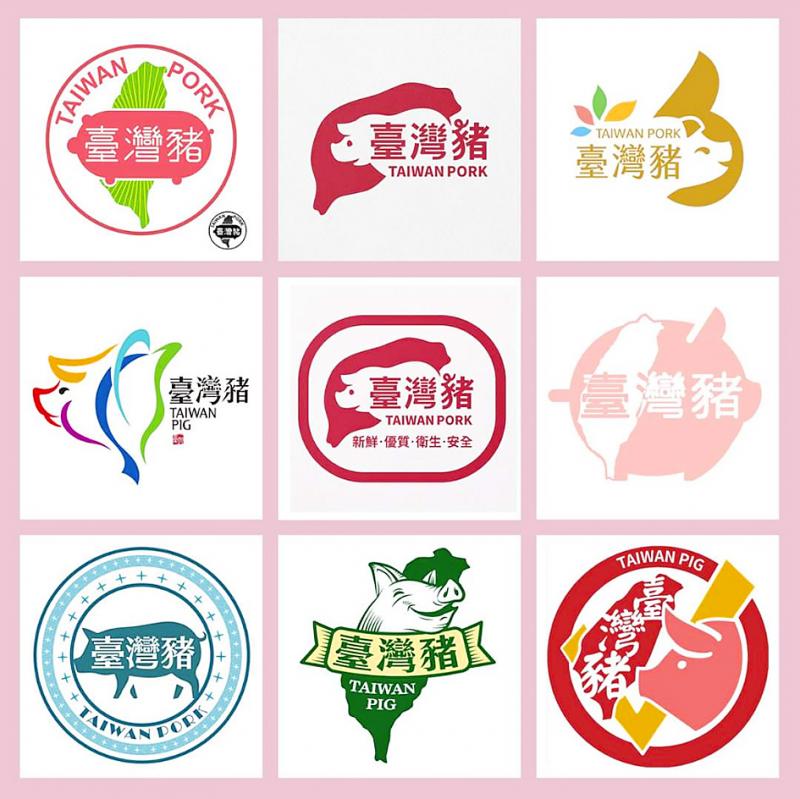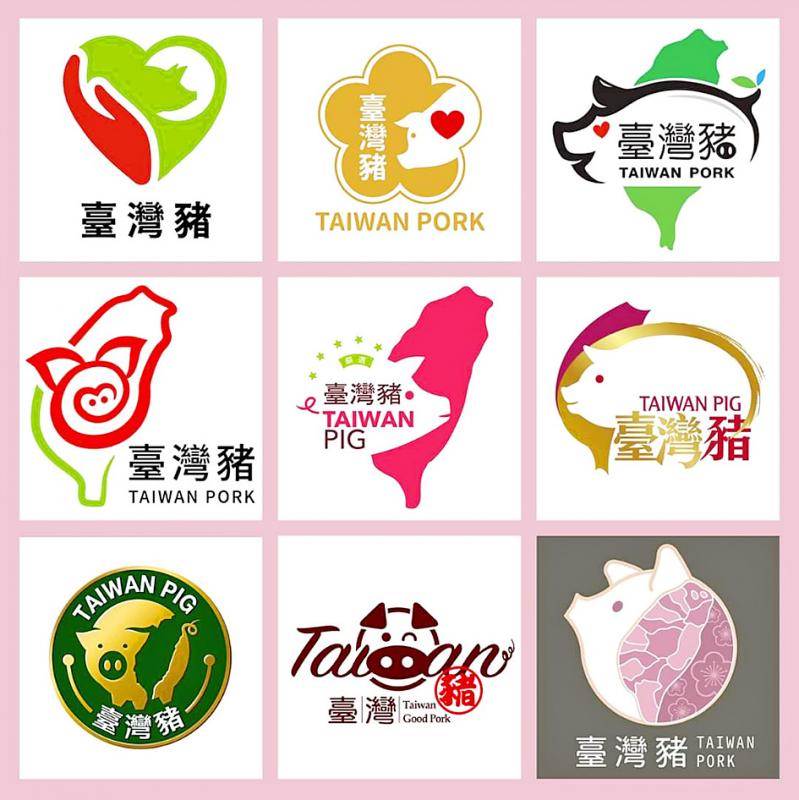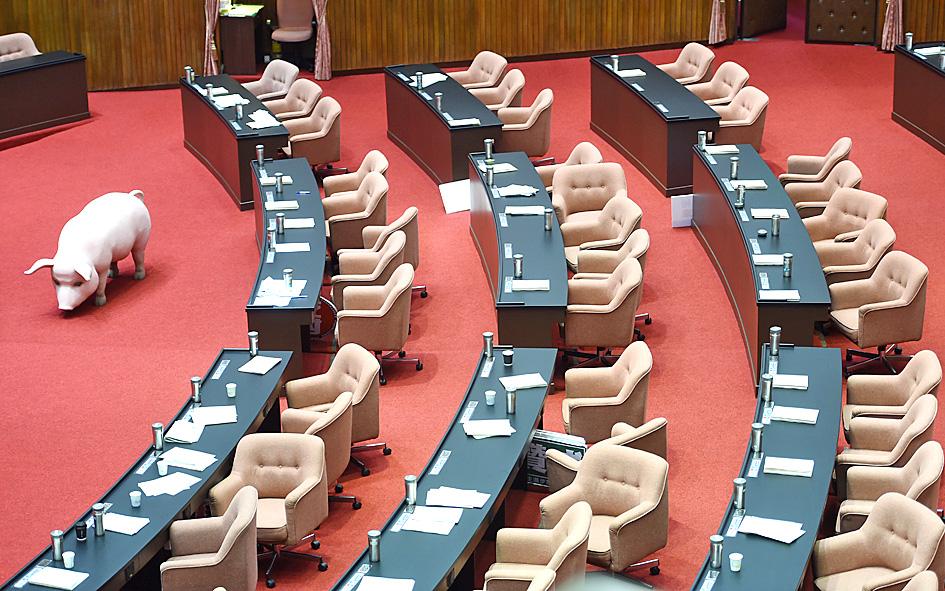Nine administrative directives related to allowing US imports of pork containing ractopamine residue were submitted to a joint session composed of five committees at the Legislative Yuan for review amid a cross-party consensus yesterday.
The administrative directives were introduced after President Tsai Ing-wen (蔡英文) on Aug. 28 announced that the government would lift bans on US pork containing ractopamine residue and US beef from cattle more than 30 months old. The policy is scheduled to take effect on Jan. 1 next year.
The Democratic Progressive Party (DPP) government has planned to allow the import of US pork through an administrative order that, according to the Administrative Procedure Act (行政程序法), requires a 60-day period for public comment before it can go into effect.

Photo courtesy of the Council of Agriculture
The Chinese Nationalist Party (KMT) has said that the issue must undergo a further, substantial review by the relevant legislative committees.
Premier Su Tseng-chang (蘇貞昌) yesterday said that he is not opposed to the proposed policy being put to review at legislative committees.
As the DPP caucus yesterday did not object, cross-caucus consensus was reached to put the issue to review at the legislative Social Welfare and Environmental Hygiene Committee, the Economics Committee, the Foreign and National Defense Committee, the Finance Committee, and the Education and Culture Committee.

Photo courtesy of the Council of Agriculture
The administrative directives include regulations on levels of ractopamine residues in pork products; the labeling of the origin of pork products to be sold to consumers and food suppliers; quarantine and examination procedures for imported beef; and rules for imports of US and Canadian beef.
Meanwhile, the Council of Agriculture is looking for the best logo for Taiwanese pork products, with winning logos from the preliminary round now in an online vote.
The vote would run until 6pm on Monday next week, the council said.

Photo: Liu Hsin-de, Taipei Times
Additional reporting by Chien Hui-ju and CNA

Taiwan is stepping up plans to create self-sufficient supply chains for combat drones and increase foreign orders from the US to counter China’s numerical superiority, a defense official said on Saturday. Commenting on condition of anonymity, the official said the nation’s armed forces are in agreement with US Admiral Samuel Paparo’s assessment that Taiwan’s military must be prepared to turn the nation’s waters into a “hellscape” for the Chinese People’s Liberation Army (PLA). Paparo, the commander of the US Indo-Pacific Command, reiterated the concept during a Congressional hearing in Washington on Wednesday. He first coined the term in a security conference last

Prosecutors today declined to say who was questioned regarding alleged forgery on petitions to recall Democratic Progressive Party (DPP) legislators, after Chinese-language media earlier reported that members of the Chinese Nationalist Party (KMT) Youth League were brought in for questioning. The Ministry of Justice Investigation Bureau confirmed that two people had been questioned, but did not disclose any further information about the ongoing investigation. KMT Youth League members Lee Hsiao-liang (李孝亮) and Liu Szu-yin (劉思吟) — who are leading the effort to recall DPP caucus chief executive Rosalia Wu (吳思瑤) and Legislator Wu Pei-yi (吳沛憶) — both posted on Facebook saying: “I

The Ministry of Economic Affairs has fined Taobao NT$1.2 million (US$36,912) for advertisements that exceed its approved business scope, requiring the Chinese e-commerce platform to make corrections in the first half of this year or its license may be revoked. Lawmakers have called for stricter enforcement of Chinese e-commerce platforms and measures to prevent China from laundering its goods through Taiwan in response to US President Donald Trump’s heavy tariffs on China. The Legislative Yuan’s Finance Committee met today to discuss policies to prevent China from dumping goods in Taiwan, inviting government agencies to report. Democratic Progressive Party Legislator Kuo Kuo-wen (郭國文) said

Sung Chien-liang (宋建樑), who led efforts to recall Democratic Progressive Party (DPP) Legislator Lee Kun-cheng (李坤城), was released on bail of NT$80,000 today amid outcry over his decision to wear a Nazi armband to questioning the night before. Sung arrived at the New Taipei District Prosecutors’ Office for questioning in a recall petition forgery case last night wearing a red armband bearing a swastika, carrying a copy of Adolf Hitler’s Mein Kampf and giving a Nazi salute. Sung left the building at 1:15am without the armband and covering the book with his coat. Lee said today that this is a serious